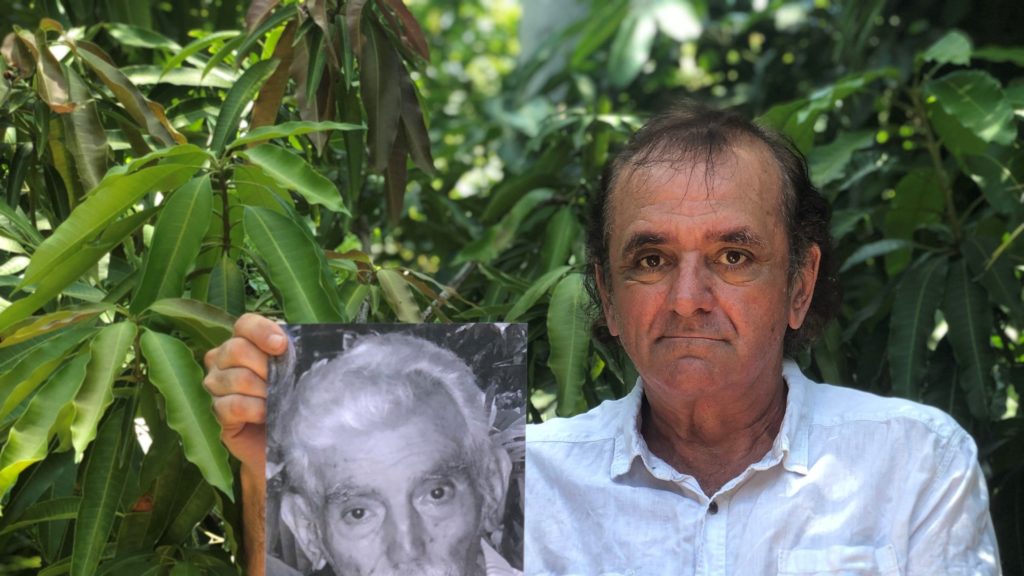Angelos Angelopoulos’s 93-year-old dad Anastasios passed away on June 23 in Townsville Hospital following complications emanating from a fall, but the Greek migrant’s body remained in the hospital’s morgue for four months as his son battled with the State Government to secure a religious burial for his father, despite having received approval for assistance via the Burial Assistance Scheme, a policy which did not cover services or religious ceremonies.
A law student himself, the 60-year-old son alleged that the Queensland Government was engaging in religious discrimination and was in breach of the Anti-Discrimination Act 1991 (Qld).
“My intention was never to beg for money, but to raise awareness on this matter which appears to be a case of religious discrimination that borders on disguised racism,” added Mr Angelopoulos, who together with Human Rights and Civil Rights lawyer, Klaire Coles, lodged a complaint with the Anti-Discrimination Commission Queensland (ADCQ).
In a letter to Mr Angelopoulos’s lawyer, Klaire Coles in October, Director General David Mackie acknowledged the importance and significance of religious and cultural beliefs.
“Queensland is a multicultural state with a diverse range of cultures and religions,” he said.
“Should DJAG (Department of Justice and Attorney-General) agree to provide church services and viewing in the current circumstances, then it would be obliged to provide a similar offer to all applicants of all cultures and religions.
“The cost to the State would be very significant and this would be a huge impost on limited Government funds to provide specialised funeral services, as opposed to a simple burial service, for each and every culture and religion in circumstances where burial assistance is approved.”
Thankfully, the Greek Orthodox communities in Cairns and Townsville came to the rescue and paid for the religious service for Mr Angelopoulos’s dad, who was finally buried on November 16, more than four months after his death.
“The church had even offered to pay for the service, saving the State Government money, and the burial plot for my dad had been paid since 2016, which would be another saving for the Government, so basically their argument just doesn’t pass the reasonable person test.

“They were saying either take it or leave it, when all I was trying to do was facilitate my father’s funeral with an integral religious ceremony,” says Mr Angelopoulos.
A conciliation hearing about the dispute was held in Brisbane this month but according to the son of the deceased, the State Government simply offered him an apology which he did not accept.
Now Mr Angelopoulos is planning to take the issue to the Queensland Civil Administrative Tribunal to make a point that the policy needs to change.
“I could have walked away from this after the funeral, if I just wanted to think of myself, but I want to help people because I believe that someone in my position, that’s vulnerable and in financial hardship, if they’re a religious person, whether it’s indigenous, Catholic or whatever, should be allowed to have that service performed as part of the funeral service.”
According to Mr Angelopoulos, a Department of Justice and Attorney-General spokeswoman said funding was not provided for “religious services or observations prior to burial, headstones or plaques, viewings, church services or funeral notices”, adding that the Burials Assistance Act 1965 imposed a duty on the chief executive of the Department of Justice and Attorney-General to bury or cremate the body of deceased person where it appeared no suitable arrangements for the body were in place.
“This ensures that a deceased person’s remains are disposed of in a way which preserves public health,” the spokeswoman said.
“Under the Act and the Burial Assistance guidelines, the Queensland Government, through DJAG, may organise a simple burial or cremation where a deceased person’s estate cannot cover burial costs and relatives are also unable to pay.
“The legislation and guidelines provide for a simple burial or cremation at the State’s (taxpayer’s) expense.”
“This is religious discrimination and has to stop now,” says Mr Angelopoulos who has now started a petition to get the State Government to change its policy.









